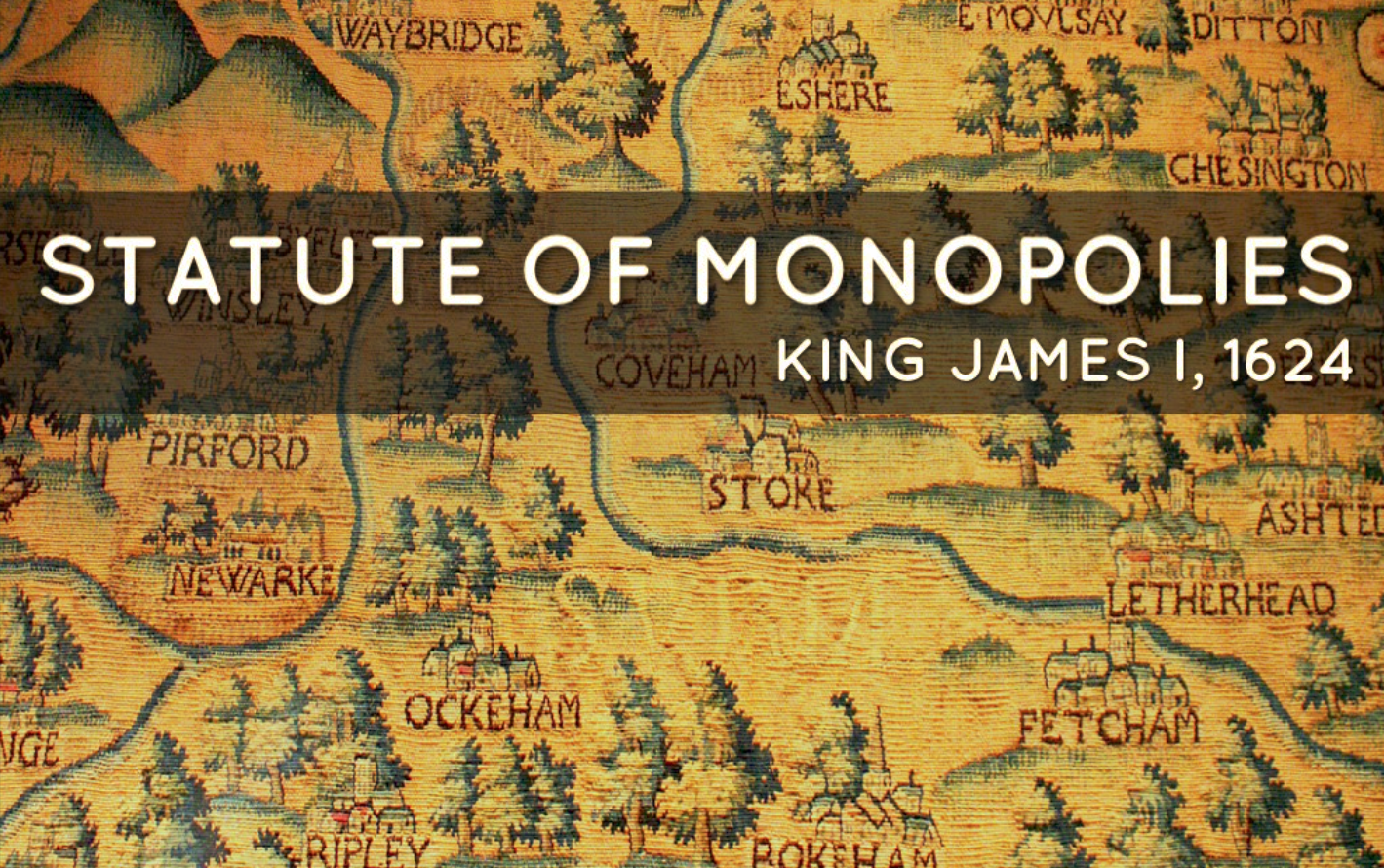The Relationship between the Statute of Monopolies and the Law of the Time
The first point to be made about the Act itself is that it has been considered to be ‘nothing more than a declaration of what the common law had always been; this perspective is, however, limited to the regulation of patents for inventions.
The Relationship between the Statute of Monopolies and the Law of the Time
The first point to be made about the Act itself is that it has been considered to be ‘nothing more than a declaration of what the common law had always been’;179 this perspective is, however, limited to the regulation of patents for
invention. As discussed above, the monopolies of the time may be best considered to fall into three categories — those for inventions, the non obstante grants, and those that regulated specific industries and trade routes and the enforcement of statutes.180 This Part will show how the Statute of Monopolies impacted on each type of grant in a different manner.
Section 1 of the Statute of Monopolies stated, in part, that:
all Monopolies, and all Commissions, Grants, Licences, Charters and Letters Patents heretofore made or granted, or hereafter to be made or granted, to any Person or Persons, Bodies Politick or Corporate whatsoever, of or for the sole Buying, Selling, Making, Working or Using of any Thing within this Realm, or the Dominion of Wales, ... or of any other Monopolies, or of Power, Liberty or Faculty, to dispense with any others, or to give Licence or Toleration to do, use or exercise any Thing against the Tenor or Purport of any Law or Statute ... and all Proclamations, Inhibitions, Restraints, Warrants of Assistants, and all other Matters and Things whatsoever, any way tending to the Instituting, Erecting, Strengthening, Furthering or Countenancing of the same or any of them ... are altogether contrary to the Laws of this Realm, and so are and shall be utterly void and of none Effect, and in no wise to be put in Use or Execution.
patent. The Act was one of three statutes passed in the 1624 Parliament aimed at the better regulation of this class of patent that gave rise in ‘almost every Parliamentary session [to] an indignant proposal for the restraint of informers’ abuses.’184 As these non obstante grants (tolerations against statutes) were also rendered contrary to law,185 the Statute of Monopolies reinforced the legitimacy of the laws passed by Parliament and the power of justices of the peace to enforce them.
With respect to the other two categories of patents, many of the monopolies relating to trade routes were retained through the corporations exception (to be discussed below). Other regulatory patents were rendered contrary to the law186 unless the patent was granted to a company or to an office holder (patents for the creation of offices were included in the exceptions in s 10 of the Statute of Monopolies). There were also a number of regulatory patents maintained elsewhere in the legislation — s 12 of the Act, for example, contained an exception for the ‘Licencing of the Keeping of any Tavern’ and another for the ‘selling, uttering or retailing of Wines’. The final category of patents to be considered here, then, is that which covered new inventions.
Patents for Invention as an Exception to the Act
The exception relating to patents for invention is contained in s 6 of the Statute of Monopolies. The key text of that section reads:
any Declaration before-mentioned shall not extend to any Letters Patents and Grants of Privilege for the Term of fourteen Years or under, hereafter to be made, of the sole Working or Making of any manner of new Manufactures within this Realm, to the true and first Inventor and Inventors of such Manufac- tures, which others at the Time of Making such Letters Patents and Grants shall not use, so as also they be not contrary to the Law, nor mischievous to the State, by raising Prices of Commodities at home, or Hurt of Trade, or generally in- convenient ...
39 pages.
The Statute.
If you can spare a few dollars for the creators of this website to continue their research to bring you more great content, any amount, no matter how great or small, would be greatly appreciated.
